Super User
How to reduce human intervention in the warehouse with robot AGV
The robot AGV has knocked on the door of the warehouse, and not as a passing guest, but as a new and welcome tenant. Automated Guided Vehicles - self-driving vehicles that perform handling tasks - represent a groundbreaking innovation for the world of intralogistics.
The innovation forms part of the wider one of Industry 4.0, which consists of connectivity and the Internet of Things, temperature, presence and movement sensors, RFID readers, and software that collects and analyses data to improve processes and perform predictive maintenance. These technologies are transforming production, but also other aspects of the supply chain.
There are various types of AGVs suitable for handling different quantities and types of goods, all of which share some abilities that translate into advantages.
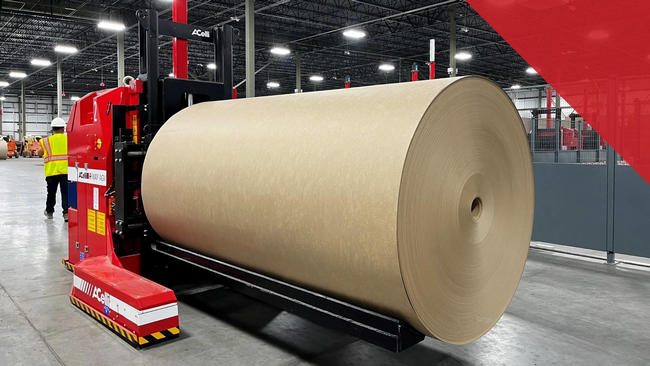
Autonomy guaranteed by software and sensors
The ability to move independently (thanks to a range of technologies: electrical, optical, magnetic, GPS, etc.) makes the presence of a driver superfluous. Vehicles equipped with software can be programmed to perform precise operations, while cameras and sensors allow machines to perceive the surrounding environment.
The strength of machines
In intralogistics, as in many other fields (such as construction), the strength of machines far exceeds that of humans. The weight-bearing capacity of robot AGVs can vary greatly, but is in all cases superior to that of a team of people and often also to that of the classic forklift truck. The most powerful models can handle loads weighing several tons.
Constant energy
Lithium batteries, which can be charged quickly, increase the productivity of AGVs and reduce downtime. It can be said, then, that the level of performance of a machine does not improve or suffer according to physical condition, tiredness, hunger or commitment, but remains constant.
Safety for workers and goods
Intrinsically safe design, bumpers, brakes, and sensors that detect the presence of obstacles all help to reduce the risk of accidents (collisions with other vehicles or people, falling of goods, etc.).
Precision without distraction
Mechanical arms designed according to the goods to be handled (bales of raw material, pallets, paper rolls, etc.) and sensors allow for precise and repeatable movements, not subject to variability or human error.
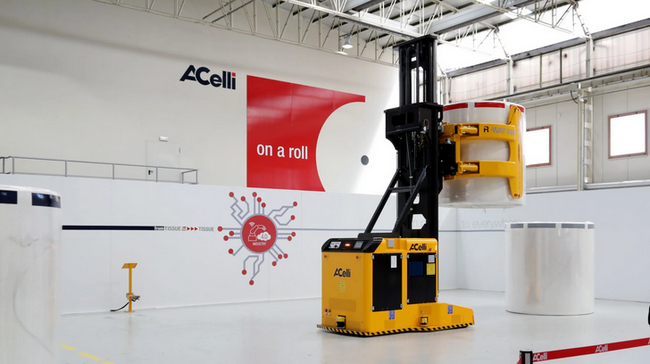
The speed of a tireless robot
It is certainly easier for a vehicle to travel long distances, from one warehouse to another or between very large warehouse departments, or to shuttle between the picking area and the logistics delivery area. The performance of a robot AGV does not depend on subjective factors, on tiredness, or on the bulk of the shifted goods.
Benefits of a flexible fleet
If a company wishes to expand its production department or warehouse, it can increase the fleet of Automated Guided Vehicles in a gradual and flexible manner without risk of interference or the need to train new personnel.
Taken individually and of course as a whole, these features demonstrate why robot AGVs are a powerful tool in terms of productivity, efficiency and savings. A single self-driving vehicle can do the work of one or more people in less time. Programming makes it possible to precisely define routes and actions for the robot, but the advantages of AGVs are maximised in the case of use for repetitive processes in the warehouse and/or on a large scale.
The future of human-robot collaboration
Will we be saying goodbye to workers in the warehouse, then? Not exactly. Robots can improve and transform intralogistics processes, as well as cost and productivity models. But they don't have to be seen as earth-shattering. Their technology is scalable: you can start with one or two, and then increase the fleet when you best see fit.
Moreover, since AGVs are essentially "workers", it is them that have to adapt to existing workflows, and not the other way around. Rather than disappear, warehouse staff will be able to devote themselves to activities of greater added value: supervision, management, planning, maintenance and shipment control (thereby increasing the precision of operations and the correctness of deliveries).
Relieved of heavy work, the staff can dedicate more time and energy to tasks of responsibility. It is therefore true that there will be "less human intervention", but not from a purely numerical point of view: the more the warehouse is automated and managed by software, the more its processes interact without the need for a person to solve problems, perform maintenance, move objects or assign tasks to colleagues. Human intervention is reduced because the problems are reduced.
Industry 4.0 therefore allows robots and people to coexist by sharing tasks and responsibilities. But there is no doubt, in any case, that a 4.0 warehouse requires fewer new staff, since if the load increases it is possible to assign more hours of work to an AGV or add to the fleet.
There is a faster return on investment in machines due to cutting of personnel costs, not to mention better productivity and efficiency. In short, AGVs must not be seen as something of which to be afraid: they can be used in warehouses without causing confusion or threatening the existing dynamics, and indeed with the promise of numerous benefits.
In this article we focused on one aspect - reduced human intervention - but we will also talk about the other advantages in our eBook "Forklifts VS AGV systems: what is best for the warehouse?". Download it now for free!
Sunset Converting expands business and AFH private label offerings thanks to Kӧrber’s Perini MyLine and service
Sunset Converting Corp is the premier AFH private label tissue converting source for redistributors in Canada and the United States. Their industry experience, reputation for quality products, and commitment to innovation prompted the construction of a new mill in Quebec to better serve these markets.
The 2020 expansion also provided an opportunity to install two Perini MyLine on the Sunset production floor.
“Automation is in our DNA,” said Sunset Converting vice president and partner Mathieu Laferriere. “Our goal for the mill was keeping things clean, automated, well done, and functional. Kӧrber was a natural choice.”
Collaborating with Kӧrber also fueled Sunset innovation. The advanced technologies and capabilities enabled the supplier to run bath tissue and kitchen towels — products previously not available to the AFH private label market. “The flexibility of Perini MyLine is amazing. The machine does exactly what it says it can do in the specs, and more,” commented Laferriere.
“We pursued equipment purchases when the pandemic made it tricky. Perini MyLine was readily available, which was key. Also, Kӧrber could demonstrate it for us in their facility in Italy.”
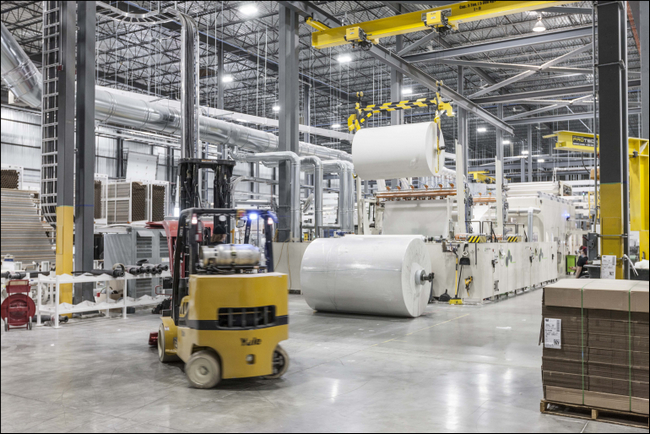
“Seeing MyLine in action and experiencing the excellent product quality and features like AquaBond water lamination first hand confirmed what we needed to know. Plus the legendary reputation of the Perini converting technology from Kӧrber gave us confidence in our purchase.”
However, gaining competitive advantage with new product introductions is only the beginning of the benefits Sunset is receiving from the Perini MyLine. Laferriere sees the equipment’s ease of use and maintenance simplicity as foundational to success.
Like the majority of companies across industries, Sunset struggles with filling the skilled labor gap. “MyLine helps us empower less experienced team members. They have the right automation, production versatility, and streamlined processes to achieve their goals,” said Laferriere. “Our employees can be proud of their contributions. In turn, Sunset is able to serve the market well and efficiently provide high-quality private label AFH products to our customers.”
Service is a top priority for Sunset, both in providing it and receiving it from their key supplier relationships. “Kӧrber aligns with the Sunset philosophy of always being transparent and proactive with customers,” explained Laferriere. “It’s important for us to live that promise, and we couldn’t do it without suppliers who are on the same page. [Account Manager] Matt Kowalski’s professionalism and knowledge reflect Kӧrber’s commitment to their customers’ success before, during, and after the sale.”
From Perini MyLine versatility to Kӧrber service dependability, Sunset Converting Corp values every aspect of Kӧrber solutions. “When you feel good about a doing a deal, it validates your business decision,” concluded Laferriere. “Perini MyLine and our trust in the entire Kӧrber team continue to prove Sunset made the right choice.”
About Sunset Converting Corp
Sunset Converting Corp.’s is the inspiring story of three renowned and respected industry experts combining their assets to build and operate ultra-automated manufacturing facilities. Our mission is to offer a variety of cost-effective private label tissue products to customers in the North American redistribution market through a highly automated manufacturing process.
Get in touch
Körber Business Area Tissue
At Körber, our ultimate goal is to empower our customers’ ongoing success. We are the only truly integrated and global provider of advanced solutions for the tissue business. We offer the industry’s most comprehensive portfolio of tissue technology to support customers across the entire value chain — from roll to fold, from converting to packaging. Our advanced, automated, and easy-to-use integrated solutions are a fundamental asset to shape the success in tissue, take our customers operations to the next level, and strengthen their overall financial performance while optimizing their total cost of ownership.
About Körber
We are Körber – an international technology group with about 10,000 employees, more than 100 locations worldwide and a common goal: We turn entrepreneurial thinking into customer success and shape the technological change. In the Business Areas Digital, Pharma, Supply Chain, Tissue and Tobacco, we offer products, solutions and services that inspire. We act fast to customer needs, we execute ideas seamlessly, and with our innovations we create added value for our customers. In doing so, we are increasingly building on ecosystems that solve the challenges of today and tomorrow. Körber AG is the holding company of the Körber Group.
Valmet to deliver two chip washing and defibrator systems to Siempelkamp
Valmet will deliver two chip washing and defibrator systems to Siempelkamp Maschinen- und Anlagenbau GmbH as part of Siempelkamp’s panelboard plant deliveries to two different end customers, one in Europe, one in Asia. The start-ups of the systems are planned for 2023 and the beginning of 2024.
The orders were included in Valmet’s orders received of the first quarter 2022. The value of the orders will not be disclosed.
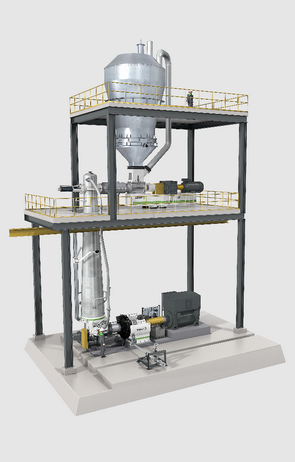 Valmet EVO 64 Defibrator System“Siempelkamp is well known as a supplier to the panelboard industry, and we are pleased to once again deliver defibrator systems to them. Together with Valmet’s market leading defibrator systems, Siempelkamp can offer high performing complete fiberboard plants to their end customers,” says Jonas Franzén, Sales Manager, Fiber Processing Business Unit, Pulp and Energy business line, Valmet.
Valmet EVO 64 Defibrator System“Siempelkamp is well known as a supplier to the panelboard industry, and we are pleased to once again deliver defibrator systems to them. Together with Valmet’s market leading defibrator systems, Siempelkamp can offer high performing complete fiberboard plants to their end customers,” says Jonas Franzén, Sales Manager, Fiber Processing Business Unit, Pulp and Energy business line, Valmet.
Technical information about the delivery
Valmet’s delivery will include all main machinery of the second-generation EVO 64 Defibrator system and chip washing, related motors, a control system as well as installation and start-up advisory.
Valmet’s defibrators are equipped with a patented grinding house that is unique in the industry. This feature enables both energy and resin savings, providing low operating costs and resulting in an environmentally friendly defibrator system for the production of high-quality wood fibers to MDF and HDF boards.
Information about the customer Siempelkamp Maschinen- und Anlagenbau GmbH
Siempelkamp is the leading global technology supplier for the panelboard industry with focus on machine and plant engineering, foundry technology, and engineering and services. Siempelkamp machine and plant engineering is a systems supplier of press lines and complete plants for the wood-based panel industry, the metal forming industry as well as the composite and rubber industry.
Valmet is a leading global developer and supplier of process technologies, automation and services for the pulp, paper and energy industries. With our automation systems and flow control solutions we serve an even wider base of process industries.
We aim to become the global champion in serving our customers. Our 17,000 professionals work close to our customers and are committed to improving our customers’ performance – every day.
The company has over 220 years of industrial history and a strong track record in continuous improvement and renewal. In 2022, a major milestone was achieved when the flow control company Neles was merged into Valmet. The combined company’s net sales in 2021 was approximately EUR 4.5 billion based on the respective company figures.
Valmet’s shares are listed on the Nasdaq Helsinki and the head office is in Espoo, Finland.
Follow us on valmet.com
Change in Stora Enso’s Group Leadership Team
Kati ter Horst, Executive Vice President, Paper Division and a member of the Group Leadership Team, has decided to leave Stora Enso as of 1 July 2022. After more than 25 years with the Company, she will now pursue career opportunities outside of Stora Enso.
Kati ter Horst joined Stora Enso in 1996 and has been leading the Company’s Paper division since 2014.
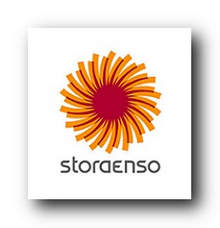 “As a highly valued member of our Group Leadership Team, Kati has been instrumental in driving Stora Enso’s transformation journey into a renewable materials company by contributing to strategy development. She has showed strong leadership and has played a key role in the extensive restructuring process of our paper business. I want to express my gratitude to Kati for her significant contributions to Stora Enso, while wishing her all the best in her future endeavours,” says Annica Bresky, President and CEO at Stora Enso.
“As a highly valued member of our Group Leadership Team, Kati has been instrumental in driving Stora Enso’s transformation journey into a renewable materials company by contributing to strategy development. She has showed strong leadership and has played a key role in the extensive restructuring process of our paper business. I want to express my gratitude to Kati for her significant contributions to Stora Enso, while wishing her all the best in her future endeavours,” says Annica Bresky, President and CEO at Stora Enso.
"I have had a fantastic international career at Stora Enso, and I am very thankful for all that I have learned and for the opportunity to work with great people. This is a good moment for me to leave and start something new,” says Kati ter Horst.
In addition to his other duties, Seppo Parvi, CFO, will assume acting responsibility for the Paper division.
Stora Enso announced in March this year that it was initiating a sales process for possible divestment of four of its five paper production sites. The process is ongoing. Stora Enso has started a feasibility study at its paper production site in Langerbrugge, Belgium, for the conversion of one of the two paper lines into a high-volume recycled containerboard line. The feasibility study is expected to be finalised in the first half of 2023.
Part of the global bioeconomy, Stora Enso is a leading provider of renewable products in packaging, biomaterials, wooden construction and paper, and one of the largest private forest owners in the world. We believe that everything that is made from fossil-based materials today can be made from a tree tomorrow. Stora Enso has approximately 22,000 employees and our sales in 2021 were EUR 10.2 billion. Stora Enso shares are listed on Nasdaq Helsinki Oy (STEAV, STERV) and Nasdaq Stockholm AB (STE A, STE R). In addition, the shares are traded in the USA as ADRs (SEOAY). storaenso.com/investors
Valmet to supply two tissue making lines to Liaoning Yusen Sanitary Products Co., Ltd. in China
Valmet will supply two Valmet IntelliTissue 1600 tissue machines for the Liaoning Yusen tissue mill located in the county of Tai’an, Liaoning province, China.
The order is included in Valmet’s orders received for the second quarter of 2022. The value of the order will not be disclosed. The total value of an order of this type and delivery scope is typically around EUR 6–8 million.
Valmet IntelliTissue machines belong to the small and medium-size tissue machines that were integrated into Valmet’s offering through an acquisition in 2020.
The two tissue lines are scheduled to be in production in the middle of 2023. The cooperation is a continuation of the successful supply of two Valmet IntelliTissue machines to Liaoning Yusen’s mill in 2020. The two new machines will increase the customer’s annual tissue production capacity by 60,000 tons.
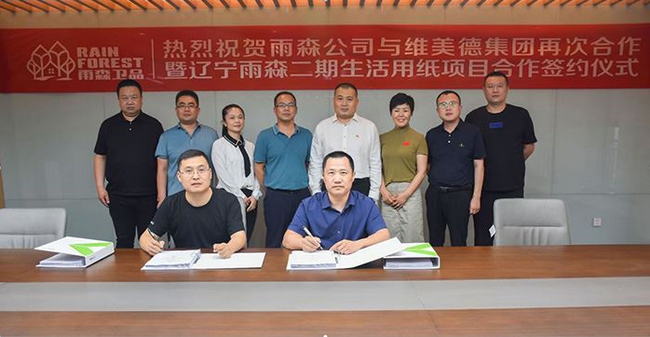 Harrison Zhang, Senior Manager of Valmet Changzhou factory (front left), signed a cooperation agreement with Zhao Zhancheng, General Manager of Liaoning Yusen mill (front right)
Harrison Zhang, Senior Manager of Valmet Changzhou factory (front left), signed a cooperation agreement with Zhao Zhancheng, General Manager of Liaoning Yusen mill (front right)
"We are happy to cooperate with Valmet again. The Valmet IntelliTissue machines stand out with their high tissue quality and low energy and raw material consumption. Valmet’s solutions enabled us to achieve ideal operating speed and drying efficiency. We were impressed by the high professionalism of the Valmet team during the execution of our previous project and are looking forward to further development with them," says Zhao Zhancheng, General Manager of Yusen Mill.
“We are grateful for Liaoning Yusen's long-term trust and collaboration. The excellent performance of our IntelliTissue machines delivered to the Liaoning mill earlier has been highly appreciated by the customer, and after years of cooperation, the Valmet and Yusen teams know each other well and work seamlessly together,” says Harrison Zhang, Senior Manager, Sales, China, Paper business line, Valmet.
Technical information about the delivery
The two new Valmet IntelliTissue making lines will produce high-quality tissue with a basis weight range of 12,5 -31,3 g/m2, a design speed of 1600m/min and a reel trim of 3500mm. The scope of supply includes approach pipe and instrumentation mechanical drive system, lubrication system, steam system and other auxiliary systems.
About the customer
Liaoning Yusen Sanitary products Co., Ltd. is a large producer and service provider focusing on tissue, nursing and hygiene and medical products by the brands "Yusen (Rain Forest)", "Baili" and "Water Gentle". The company is located in the Liaoning province in China.
Valmet is a leading global developer and supplier of process technologies, automation and services for the pulp, paper and energy industries. With our automation systems and flow control solutions we serve an even wider base of process industries.
We aim to become the global champion in serving our customers. Our 17,000 professionals work close to our customers and are committed to improving our customers’ performance – every day.
The company has over 220 years of industrial history and a strong track record in continuous improvement and renewal. In 2022, a major milestone was achieved when the flow control company Neles was merged into Valmet. The combined company’s net sales in 2021 were approximately EUR 4.5 billion based on the respective company figures.
Valmet’s shares are listed on the Nasdaq Helsinki and the head office is in Espoo, Finland.
Follow us on valmet.com
Cepi calls for more focus, impact assessment and consultation on EU Commission’s nature restoration proposal
A Regulation on nature restoration has now been tabled by the EU Commission, the first European legislation addressing biodiversity in three decades. Parts of the proposed regulation would be relevant to the management of forests. Cepi, the Confederation of European Pulp and Paper Industries, continues to support the health and resilience of ecosystems, although a renewed European effort would have to be focused, efficient and inclusive.
The Commission proposal includes sweeping targets, with all ecosystems in need of restoration being covered by 2050 and an “increasing trend” of key indicators to be achieved in all forest ecosystems. But it does not clarify which actors will ultimately bear the responsibility and cost for the implementation of restoration measures which will require considerable human and financial resources (up to 54 billion euros according to the Commission). Cepi considers that restoration should first be targeted at areas where its benefits for biodiversity are maximised in order to be efficient. For example, in those already designated in the Natura 2000 network, or in areas affected by natural disturbances such as fires and insects.
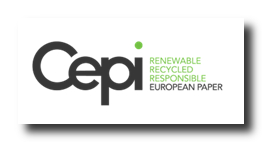 What restoration would mean in areas that are not currently protected also is not yet well defined in the Commission’s proposal and its impact on the economic functions of the forests would need to be thoroughly assessed. The Commission’s own preliminary assessment recognises that “opportunity costs could stem from decreased biomass harvests” but does not go further in integrating these costs into its models. The decision on criteria determining a habitat’s ‘satisfactory level’ of restoration will rest in the hands of Member States through National Restoration Plans. In this process, Cepi calls for the consultation of all forestry stakeholders, to allow Member States to draw from extensive knowledge safeguarded by local actors, including those who depend on forests for their livelihoods.
What restoration would mean in areas that are not currently protected also is not yet well defined in the Commission’s proposal and its impact on the economic functions of the forests would need to be thoroughly assessed. The Commission’s own preliminary assessment recognises that “opportunity costs could stem from decreased biomass harvests” but does not go further in integrating these costs into its models. The decision on criteria determining a habitat’s ‘satisfactory level’ of restoration will rest in the hands of Member States through National Restoration Plans. In this process, Cepi calls for the consultation of all forestry stakeholders, to allow Member States to draw from extensive knowledge safeguarded by local actors, including those who depend on forests for their livelihoods.
Sustainable forest management practices as supported by Cepi are changing to meet new challenges, including in developing existing measures to protect biodiversity. This is why these practices have already improved biodiversity in many forest areas which are now unprotected. Sustainable forest management is also an efficient mean of climate change mitigation, by increasing forests’ carbon sink through the management of their age structure. It also helps forests’ climate adaptation, sometimes by introducing new species that are more resilient to new conditions. Biodiversity and climate objectives are both enhanced by human intervention, but in a changing climate neither supposes keeping forests exactly as they are today.
Other initiatives addressing biodiversity already exist. The Forest Europe process, to which EU Member states are signatories, has developed criteria and indicators for sustainable forest management which include biodiversity indicators. The Forest Europe 2020 report shows that over the years, sustainable forest management, in both protected and non-protected areas, has led to improving trends for many indicators, such as forest area, growing stock, deadwood volumes, tree species diversity, forest area designated for biodiversity conservation and forest bird species.
Quote
“The word ‘sustainability’ is originally a forestry term, coined already 300 years ago. Practicing sustainable forest management for so long has also been a journey to increase our understanding and evolve forest management. Now the best practice is to aim at a net positive impact for biodiversity through active forest management, including harvesting. In the light of the climate challenge, even protected areas are likely to require active management.”
Jori Ringman, Director General – Cepi (Confederation of the European Paper Industries)
HS MANUFACTURING GROUP AND AMAZON PAPYRUS CHEMICALS ANNOUNCE PARTNERSHIP IN ASIA PACIFIC REGION
HS Manufacturing Group and parent company Greentech Global have just announced a partnership with speciality chemical company Amazon Papyrus Chemicals to promote PROTĒAN® plastic-and PFAS-free barrier solutions.
Key stakeholders increasingly dedicating their efforts to reduce or eliminate plastics and other environmentally harmful materials from product packaging. We understand that partnerships along the value chain play a critical role in achieving the goal of reducing the use of plastic. That is why HS Manufacturing Group, developer of the PROTĒAN line of biobased oil, water and grease barriers is delighted to announce a partnership with Amazon Papyrus Chemicals to accelerate the adoption of PROTĒAN solutions within the Asia-Pacific and Middle East region.
The PROTĒAN platform employs blends of plant-based derivatives that have been used for decades in foods, cosmetics, pharmaceuticals, and other applications. HSMG’s discovery of the barrier properties of these materials launched an entirely new approach to displacing plastics and PFAS, both widely used classes of materials that are being replaced around the globe as quickly as possible due to environmental, health and safety concerns.
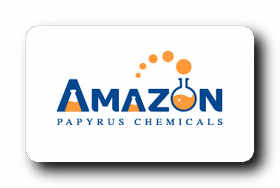 The applications of PROTĒAN include oil and grease takeaway papers and moulded fiber packaging. Agricultural mulches and containers are also significant opportunities.
The applications of PROTĒAN include oil and grease takeaway papers and moulded fiber packaging. Agricultural mulches and containers are also significant opportunities.
“Plastic and PFAS have been effective and very easy to use” states Samuel Mikail, Chairman of HSMG parent company Greentech Global. “New, sustainable solutions can be equally effective and economically viable, but may also require new expertise in implementation. Amazon Papyrus is uniquely positioned to provide new materials and services to ensure success with PROTĒAN in the Asia-Pacific market.”
The Asia Pacific has been phasing out “non-recyclable” or single-use plastic due to the sustainability initiatives from governments & brand owners. The current market of fibre-based packaging widely uses PE film and aluminium foil which are hard to recycle and Fluorochemcial which is bio-accumulative. Alternatives to these current conventional packaging and food service formats such as sustainable barrier materials will assume a critical role and contribute to the circularity and carbon footprint reduction in the industry.
Carmen Wong, Group Corporate Strategy & Development Director of Amazon Papyrus Chemicals states that “Amazon Papyrus Chemicals together with HSMG strategic partnership offers a full range technology portfolio to improve the end-use fibre-based packaging performance and the efficiency of the production process through optimizing raw material and energy consumption.”
“Our company is committed to operating our business in a sustainable manner and contributing to the UN SDGs. We are extremely proud that we are able to help our customers meet their sustainability goals whilst also generating a substantial return on their investment.” States Mike Grundy, CEO of Amazon Papyrus Chemicals.
About Amazon Papyrus Chemicals
Amazon Papyrus Chemicals Ltd is a leading speciality chemical and process solution provider to the Pulp & Paper industry in Asia. Found in 2000 with headquarter located in Hong Kong, Amazon Papyrus Chemicals now has an established presence in 14 markets with over 450 employees, serving over 350 customers in Asia & Middle East. We offer sustainable solutions for paper & pulp packaging in the region. Together with our partners and customers, we create supportive, engaged customer service and support to clients. For additional information about Amazon Papyrus, please visit: http://www.amazon- papyrus.com/
About HSMG
HSMG LLC, a Greentech Global Pte. Ltd. company, develops and licenses its patented additive and barrier coating platform technology, PROTĒAN®, to paper and packaging manufacturers and speciality chemical companies. They offer water-resistant and/or oil- and grease-resistant alternatives to plastic coatings and fluorochemicals in a broad range of cellulose-based single-use products. To learn more, please visit www.hsmgrp.com.
Toscotec launches new concept machine for a more sustainable structured tissue.
Toscotec launches INGENIA, a new concept tissue machine to produce premium quality structured tissue paper. The quality generated by INGENIA line is substantially higher than textured tissue and close to Through Air Drying (TAD) produced paper, but using 35% less energy.
With INGENIA Toscotec responds to the challenge of today’s paper market calling for premium quality tissue obtained with lower energy use and lower capital investment than TAD lines. INGENIA’s concept is based on consolidated technologies for premium tissue, building on vast internal know-how of Toscotec’s and Voith’s R&D, and field data validation on TAD and structured paper systems.
Paolo Raffaelli, Toscotec Chief Technology Officer, says: “The key factor for energy reduction compared to TAD, is that INGENIA achieves significantly higher dryness through non-thermal dewatering on a structured moulding fabric. With TAD, the thermal drying starts from 24-26%, whereas INGENIA achieves a much higher dryness level without using hot air or steam. This maintains the premium quality obtained through rush transfer and structured moulding fabric, but uses much less energy.”
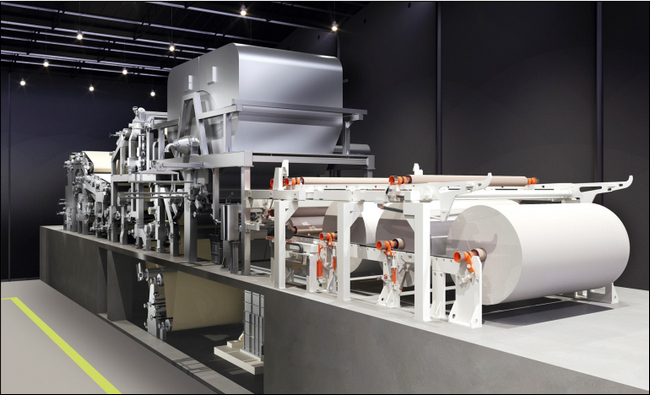
Ultra-premium tissue quality
Through non-compressive water removal technologies and efficient fiber moulding, INGENIA produces much higher tissue quality properties than other technologies for textured or conventional DCT tissue. These properties include bulk, softness, stretch, and absorbency, which improve the tactile “hand” feel and the final paper characteristics that compete with premium segments for toilet, facial and towel tissue grades.
The specific pattern of the structured fabric and the use of a calender can further enhance the quality of end products.
Energy Efficiency through Process Innovation
The process of this new concept machine begins with a dilution profiling layered TT Headbox-ML operating on a twin-wire forming section. Like TAD machines, INGENIA operates wire rush transfer at low consistency, but its key capability is an enhanced vacuum de-watering system without pressing the paper web, which ensures that dryness is greatly increased while fibers are being supported in the same shape as they originally formed when fully water saturated.
At the end of the wet section, TT NextPress shoe press uses low loading pressure to gently stabilize the web dryness content and transfer the paper to the drying section without bulk compression. The combined action of a third-generation design TT SYD Steel Yankee Dryer and high-efficiency TT Hood achieves the final desired dryness.
The process is completed by dry creping, sheet stabilization integrated with dust removal, and precision winding using an electro-mechanical TT BulkyReel fitted with a Center Wind Assist on the primary and the secondary arms. The Center Wind Assist fully preserves bulk by reducing the nip pressure against the reel drum during the winding process.
Flexible Configuration
The new INGENIA offers top flexibility, as it can easily swing from the production of premium quality structured tissue to conventional DCT. When in conventional mode, INGENIA delivers top machine speed and production capacity.
INGENIA features widths up to 6 m, a production capacity from 100 to 250 tpd, and operating speeds up to 1,500 m/min in structured tissue mode or 2,000 m/min in conventional mode, depending on machine size and customer requirements.
For further information, please contact:
Marco Dalle Piagge, Sales Director, Toscotec Tissue division, This email address is being protected from spambots. You need JavaScript enabled to view it.
Asia Symbol Group in China expands use of ABB’s MES to increase productivity
ABB has been awarded a software and service contract by Asia Symbol Group in China to provide the ABB Ability™ Manufacturing Execution System (MES) for a new production line, with delivery and commissioning ongoing throughout 2022.
- ABB and pulp and paper producer Asia Symbol reinforce long-standing relationship with expansion of ABB Ability™ Manufacturing Execution System (MES) to cover new production line
- Upgrade to extend productivity and profitability at the company’s mill in Guangdong, China
- MES is specifically designed to enable pulp and paper producers to optimize storage, energy and raw material usage
The expansion will help Asia Symbol to optimize its overall production process across all lines at its Guangdong mill, providing better oversight for planning, scheduling and continuously improving efficiency and reducing waste. A rich application experience will give operators greater real-time visibility across the entire manufacturing process, creating a visual factory to ensure the delivery of products of the right quality at the right time.
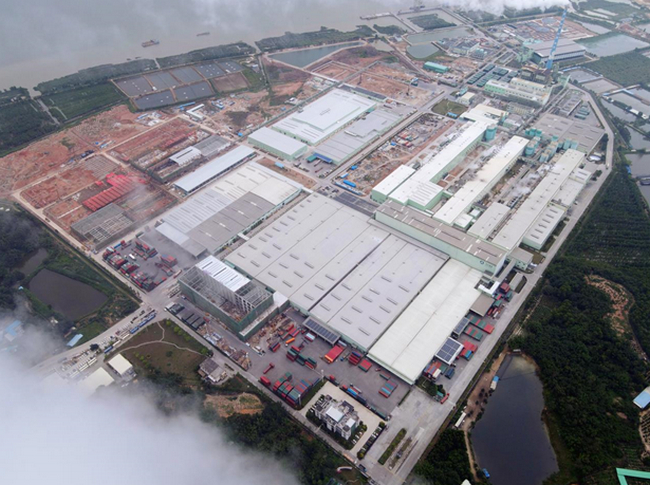
Specifically designed to enable pulp and paper producers achieve operational excellence and maximum performance, ABB’s MES helps optimize storage, energy and raw material usage, in turn improving product output and quality.
“ABB has been our trusted MES partner due to high competency and clear focus on the entire pulp and paper operation, from mill floor to enterprise level planning. We have benefited from their approach to convert digital data into world-class business results and are looking forward to the expanded use of ABB’s MES over our entire mill,” said Mr. Liang LiFu, IT Manager at Asia Symbol's Guangdong production base.
“Our operations team is commissioning the MES implementation while the other two production lines are still running,” said Shankar Singh, Digital Product Line Manager, Pulp and Paper, ABB. “We are pleased to be supporting Asia Symbol in reaching their operational goals through our MES which will provide transparency across the value chain and optimize material flow within their paper mill.”
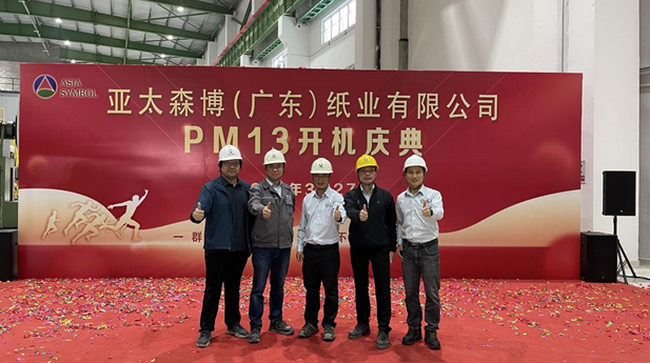
This latest contract affirms the strong, long-standing relationship between ABB and Asia Symbol, a world leading producer of pulp and paper under the RGE Group. In recent years this has seen the provision of paper machine drives and QCS products, and the successful extension of ABB’s MES service to Asia Symbol’s three production lines at the Guangdong production base.
Last year, ABB secured another MES upgrade project from APRIL Group for its Kerinci mill in Indonesia, which is also part of RGE Group. The order covers three paper machine lines with 1.5 million tons of annual production and was delivered in Q1 2022.
ABB (ABBN: SIX Swiss Ex) is a leading global technology company that energizes the transformation of society and industry to achieve a more productive, sustainable future. By connecting software to its electrification, robotics, automation and motion portfolio, ABB pushes the boundaries of technology to drive performance to new levels. With a history of excellence stretching back more than 130 years, ABB’s success is driven by about 105,000 talented employees in over 100 countries. www.abb.com
ABB’s Process Automation business is a leader in automation, electrification and digitalization for the process and hybrid industries. We serve our customers with a broad portfolio of products, systems, and end-to-end solutions, including our # 1 distributed control system, software, and lifecycle services, industry-specific products as well as measurement and analytics, marine and turbocharging offerings. As the global #2 in the market, we build on our deep domain expertise, diverse team and global footprint, and are dedicated to helping our customers increase competitiveness, improve their return on investment and run safe, smart, and sustainable operations. go.abb/processautomation
PulPac continues to expand the Dry Molded Fiber patent portfolio
With two new patent applications filed last week, PulPac continues to expand the Dry Molded Fiber patent portfolio. The new patent applications are directed to ejection elements in connection to the forming mold. The main purpose of the ejection elements is to release the product from mold parts for an easy removal of the products. The ejection elements can also be used for imprinting a pattern in the product, to be read or scanned for information purposes.
Dry Molded Fiber is invented, patented and licensed to packaging manufacturers by PulPac. The game-changing technology is up to ten times faster than traditional fiber forming methods and offers highly competitive unit economics. In addition, being a dry process, it saves significant amounts of valuable water and energy, resulting in up to 80% lower CO2 emissions compared to alternatives.
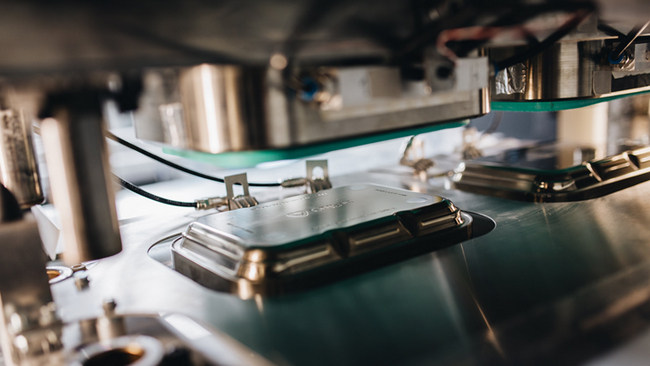 Dry Molded Fiber - the fiber forming technology that can transform the industry and establish a new global standard for sustainable fiber-based packaging and single-use items.
Dry Molded Fiber - the fiber forming technology that can transform the industry and establish a new global standard for sustainable fiber-based packaging and single-use items.
To date, PulPac holds 28 patent families with 85 granted national patents and plus 50 pending patent applications. New patent applications are filed continuously. In addition, PulPac has a substantive body of know-how and trade secrets that are shared only within the Dry Molded Fiber network. Based on the core IP, PulPac has developed a complete technology platform covering multiple areas of fiber application manufacturing. All driven by the need of disruptive technical solutions that enable a sustainable packaging industry.
Peter Ekwall, CIPO, comments, “Innovations are detected and harvested every week, which gives us the possibility to rapidly expand our patent portfolio with good quality. We also see an increased interest from our partners to contribute to the patent and technology pool. All things considered; this is beneficial for everyone that wants to join us in our mission to replace single-use plastic as soon as possible.”
About PulPac
PulPac provides the packaging industry with a groundbreaking manufacturing technology for low-cost, high-performance fiber-based packaging and single-use products. By pioneering the technology of cellulose molding PulPac enables their customers to replace single-use plastics with a sustainable and cost competitive alternative globally.
For additional information about PulPac, please visit www.pulpac.com
